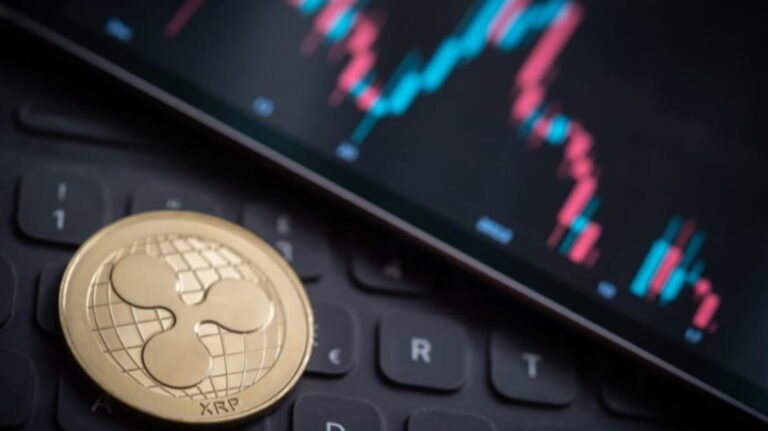Bitcoin maximalists switch to XRP: The world of cryptocurrencies is changing at a dizzying pace, and old alliances and tribal loyalties are facing challenges they’ve never encountered before. A controversial statement from well-known crypto analyst David Schwartz has sent shockwaves through the digital asset industry. He says that even the most devoted Bitcoin maximalists may one day switch to XRP instead of Bitcoin. This strong statement contradicts the fundamental concept of crypto tribalism, prompting us to question the future of digital money usage.
Bitcoin Maximalist Movement
Bitcoin maximalism is one of the most important ideas in the Bitcoin world. These devoted supporters are completely convinced that Bitcoin is the best way to store money and exchange goods. People who believe in Bitcoin to the fullest, sometimes referred to as “Bitcoin maxis,” typically believe that other cryptocurrencies are either inferior products or outright scams. They view Bitcoin as the only genuine digital currency worth investing in and using.
Bitcoin’s first-mover advantage, established network effects, and demonstrated track record as a digital gold standard are what led to the maximalist mindset. Michael Saylor, Max Keiser, and Saifedean Ammous are some well-known individuals who have supported this narrative, emphasizing Bitcoin’s scarcity, decentralization, and resilience to monetary manipulation. However, recent market changes and the advent of new technologies have begun to make even the most devoted believers question their faith.
XRP’s Rising Prominence in Institutional Finance
Ripple’s native coin, XRP, has garnered significant attention from institutional investors and traditional financial institutions, despite ongoing challenges from the Securities and Exchange Commission. XRP is a strong competitor to Bitcoin in certain situations, as it can be used for cross-border payments and is connected to major global financial networks.
XRP utilizes a ledger system that is more environmentally friendly and processes transactions in seconds for a minimal fee. This differs from Bitcoin’s proof-of-work consensus mechanism, which consumes a significant amount of energy. This efficiency advantage has led to partnerships with major banks, including Bank of America, JPMorgan Chase, and Santander, which provide real-world applications that extend beyond trading.
Shifting Views in Bitcoin Maximalism

Maria Rodriguez, a blockchain consultant and cryptocurrency expert, recently provided strong evidence that Bitcoin maximalists may change their minds when the market shifts. Rodriguez says that in the end, practical usefulness and clear rules will prevail over ideological purity, especially as more institutions adopt the technology and environmental concerns intensify.
The expert’s analysis highlights several key elements that could contribute to this change, including XRP’s higher transaction speed, lower environmental impact, and increased adoption by established banks. Rodriguez says that even the most die-hard Bitcoin fans know that technological progress and market efficiency are important for long-term success.
Regulatory Shifts and Evolving Crypto Preferences
Ripple Labs and the Securities and Exchange Commission are still engaged in a court battle, which has left the regulatory status of XRP unclear. Recent court decisions, combined with the growing global acceptance of XRP as a legitimate digital asset, have altered the market’s perception of the token.
At the same time, Bitcoin must contend with regulatory issues, such as potential limits on energy consumption and tax laws that could impact its long-term viability as a mainstream financial tool. These legal demands, combined with scalability issues and high transaction fees, have led even the most dedicated maximalists to question whether everyone can utilize Bitcoin and benefit from its technological innovations and competitive advantages.
Since the introduction of Bitcoin in 2009, the cryptocurrency industry has undergone significant technological advancements. Layer-two solutions, smart contract platforms, and interoperability protocols have opened up numerous additional ways to utilize digital assets beyond Bitcoin’s original concept of peer-to-peer electronic payments.
XRP’s consensus algorithm and distributed ledger technology offer unique benefits for certain applications, particularly for banks and other financial institutions that require efficient and cost-effective methods for settling transactions. Smart investors and industry experts who care more about how things work than what they believe have recognised these technological differences.
Evolving Investment Strategies in Crypto Markets
As cryptocurrency markets have grown, so have the methods people use to invest and manage their portfolios. Increasingly, professional traders and institutional investors are evaluating digital assets in terms of their practical utility, potential for adoption, and risk-adjusted returns, rather than solely their ideological value.

This shift in how people perceive the market means that even die-hard Bitcoin fans may start to invest in a more practical way as the business grows.. The idea of diversifying a portfolio and strategically allocating assets has become increasingly popular among Bitcoin enthusiasts who previously focused solely on Bitcoin. This has opened the door for other cryptocurrency investments.
Institutional Adoption of XRP for Global Payments
Utilizing cryptocurrency technology to address real-world challenges has become a significant means of generating long-term value. XRP’s ability to facilitate international transfers and cross-border payments demonstrates that blockchain technology can do more than facilitate speculative trading.
Banks and other financial institutions worldwide have begun using XRP-based solutions for their payment systems, creating demand that extends beyond retail speculation. This pattern of institutional adoption differs significantly from Bitcoin’s primary use case, which is as a store of wealth and a means to protect against inflation. This suggests that the market will behave differently and grow in different ways.
XRP’s ESG Advantage in Sustainable Investing
Environmental, social, and governance (ESG) aspects are becoming increasingly essential for institutional investors and corporate treasury management. Regulators and environmentalists are still examining the energy consumption of Bitcoin, which may make it less appealing to investors who prioritize Environmental, Social, and Governance (ESG) considerations.
For environmentally aware investors who nevertheless want to invest in cryptocurrency, XRP’s much smaller carbon footprint and energy efficiency make it a very appealing option. As more businesses adopt this technology and environmental regulations become stricter worldwide, this sustainability benefit is likely to become increasingly important.
Future of Crypto Tribalism
The idea that Bitcoin maximalists would eventually accept XRP is part of a bigger trend away from tribal loyalty and towards smart investment choices based on how useful a technology is and how well it works in the market, thoftcryptocurrency businessness oof cryptocurrencybusiness and how more people are realizing that various digital assets can exist and serve different functions within the global financial system.
Experts in the field say that the future of cryptocurrency acceptance doesn’t lie in winner-take-all situations, but in specialized applications where different coins excel in certain situations. This perspective diverges from the conventional maximalist approach, opening up opportunities for more nuanced investment strategies.
Crypto Strategies Beyond Bitcoin Maximalism
The potential shift from Bitcoin maximalism to XRP adoption has significant implications for how to invest and build a portfolio. When investors consider making substantial adjustments to their cryptocurrency holdings, they must carefully assess their risk tolerance, investment objectives, and the duration of their intended holding period.
Increasingly, professional portfolio managers are recommending that individuals invest in cryptocurrencies in a manner that acknowledges the unique strengths and applications of each digital asset. This shifting strategy may prompt Bitcoin maximalists to reconsider their singular focus on a single asset and instead seek a more balanced approach to investing in cryptocurrencies.


